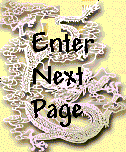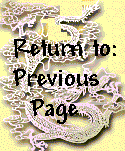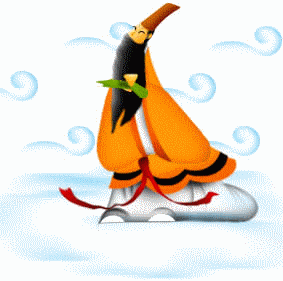
--The Chou dynasty had the 1st Chinese empire that saw the beginning of feudalism that unfortuantely led to disunity & its destruction, that saw the Classical Age of Philosophy to develop.There were glorious achievements in internal development.Longest dynasty in Chinese history,divided into 2 parts: --Western Chou (1127-771 BC) & Eastern Chou (771-256 BC) It is then further divided into 2 sub-periods of decentralised rule,disunity & chaos: --Spring & Autumm [Ch'un-ch'iu] (771-481 BC) & Warring States [Chan-Kuo] (463-221 BC).
--Success of state attributed to the founder Chou Wen-Wang & the second wang/king, Wu-Wang.Its establishment has also been chronicled into a fantasy extravangza where gods,humans,demons & spirits took sides & fought to make the first 2 kings able to topple the debauched Shang dynasty,ruled by the tyrant king Chou,creating a novel entitled 'Feng-hsen-yen-I' (directly translated as 'The Canonization of the Gods').But its time of writing & author are unknown & is definitely not written during Chou times.It contains ancient myths & legends that are important in Chinese religions.
Earliest Chinese Written Documents/The Chinese Classics:
The philosophers for 2000 years looked to the glorious ages of the past,in particular the Chou for their inspiration.Most philosophers like Confucius lived during the 2 sub-periods.Confucius for example was from the state of Lu during the Spring-Autumm period & lived from 551-479 BC.The classics,for more than 2000 years served as solutions to many new problems as scholars tried to draw answers from them.The best known of these are always referred to as the 5 Classics,4 Books & 13 Classics.
Elegies of Chu (Chu-chih): This is a new form of poetry-writing by the people of the state of Chu,during the Warring states ,which is very different from the styles of the other states,since each state had its own culture & languague.Works of the great patriotic poet Ch'u Yuan (circa 340-277 BC) & Sung Y'u are included in the collection.
Ch'u Yuan: Ch'u Yuan is the main Chu poet.His representative work is 'On Encountering Sorrow' (Li-sao),the longest Romantic poet ever in China,totalling 373 lines & 2490 words.Style is descriptive & full of imaginery & mythological allusions.Its greatest achievement lies in its use of symbolism which is not
hyperbolic to reflect his thoughts & ideals.The content relates his lifestory & his anger of the evils of court intrigue & the decadence of the nobility.After being banished from his beloved state at the orders of evil courtiers that influenced the ruler,the righteous poet was forced to wander about,writing poetry,including 'Li-sao',obeserving folk rites & legends that greatly influenced his works.Finally when the Chu capital fell to the Chin troops,he drowned himself in despair & agony on the 5th day of the 5th month of the Chinese Lunar year,into the River Mi-lo.There was a search for his body & the people threw rice dumplings into the river to feed the fish so they would not eat the poet's body.From this,we can see the love the people have for him,which leaves him an illustrious name in history who gained everlasting respect.Over the years,it came to be the famous Dragonboat/Rice dumpling Festival.
The picture on this page is a cartoonised version of him,as he carries a triangular shaped yellow colored dumpling.
~(Index of Site)~
1.Classic of Songs/Book of Poetry (Shih Ching) --305 poems of different states dating from 1100-600 BC.
Many are simple poems,some are political poems & ritual hymms.
2.Classic of Documents/Book of History (Shu Ching) -- semi-historical documents & speeches,dating from the early centuries of the Chou period.
3.Classic of Changes/Book of Divination (I-Ching) -- collection of documents of various dates that are used till now for fortune-telling, feng-hsiu & in alamancs.
4.Spring & Autumm Annals (Ch'un Ch'iu) -- edited by Confucius to record major historical events from 722-480 BC.A historical record is another type of prose form.
5.Book of Rites/Record of Rituals (Li-Chi) -- compilation made in 200 BC of the earlier materials dealing with rites & rituals: a historical record.
1.Great Learning (Ta-Hsueh) -- self-cultivation as the key to good society
2.The Doctrine of The Mean (Chung-Yung) -- moderation in man's conduct enables him to live in harmony with nature
3.Analects (Lun-Yu) -- collection of saying of Confucius & incidents from his life complied by his disciples after his death,open to varrying intepretations because they do not consist of systematic philosophical treatises.
4.Mencius (Meng-Tzu) --a record of sayings of Mencius, lively & descriptive recording of his debates
The 4 Books were grouped together & published in 190 AD,became the basis of study for all civil service exams/the imperial exams from about 1300 AD-1900,exerting great influence upon Chinese thought & life,even till now,resulting in Confucian conservatism.
7.The 5 Classics,with the Ch'un Ch'iu counting as 3 separate classics.
8.Ceremonies & Rituals (I-Li) -- records of rituals & ceremonies
9.Ritual of Chou (Chou-Li) -- information of Chou period
10.Analects
11.Mencius
12.Classic of Fillial Piety (Hsiao Ching) --records of acts of piety dating from 3-2 BC
13.The Erh Ya -- a collection of glossaries to literary texts & marks the beginnings of dictionary making


